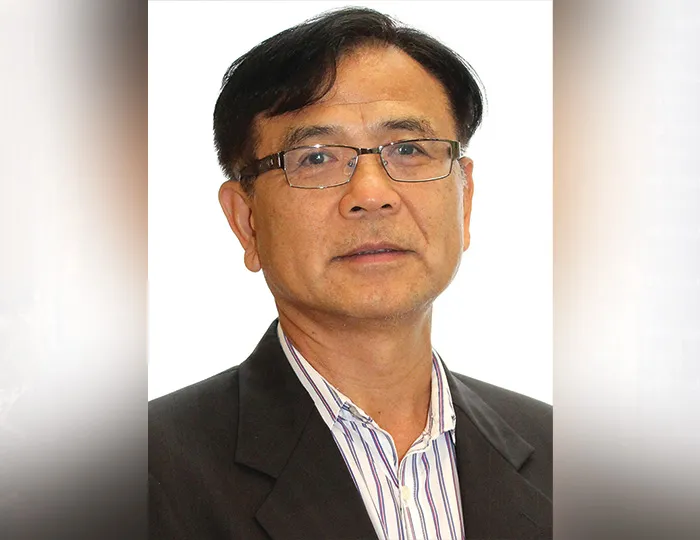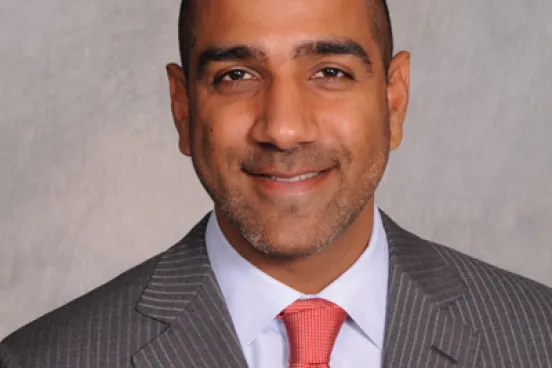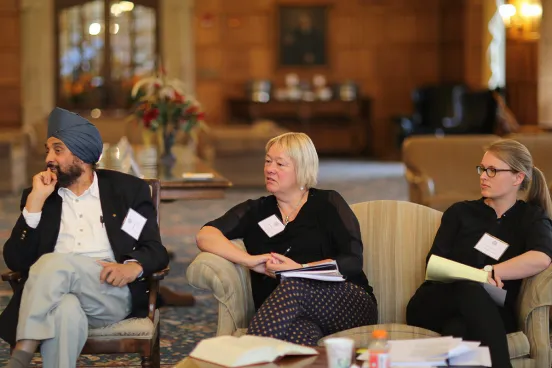
When When Samuel Zhang, LLM ’85, left the United States to return to Asia in 1993, he did not expect that Chinese companies would begin aggressive investment in foreign countries while he was still a practicing attorney.
“Back then, I thought it would happen maybe in 50 years,” says Zhang, principal of the Hong Kong-based Sam Zhang & Co., a corporate- and commercial-law firm that also has offices in Shanghai and Beijing. “Instead, what has happened is that the economy of China has been growing really fast until just recently, and China needs foreign resources, technology, and corporate talent to facilitate its economic growth. The outbound investment trend is just beginning.”
Just as he has represented U.S. and European companies with investments and cross-border transactions in Asian countries throughout the past two decades, Zhang is now assisting companies from China, Hong Kong, and Taiwan that seek to conduct business in the United States, Europe, and other parts of the world.
“When I moved to Hong Kong from Washington, D.C., as a partner of a major U.S. law firm with a heavy Asian focus, I expected the economic arising in China,” says Zhang, whose team includes 14 attorneys in addition to him. “[In the early 1990s], a lot of foreign companies were going into China, using the low-cost labor there manufacturing for export out of China. Starting in the mid- and late-1990s, many American companies wanted to invest in China no longer for export, but for China’s domestic market.
“Now,” he says, “investment has slowed down, and the market has consolidated. Newcomers will be facing tougher challenges. But there is much movement in China to go abroad.”
During the previous trends and now, firms such as his—with attorneys trained both in China and the United States—have been vital to their clients’ successes, he points out. “Besides strict legal issues, such as regulatory compliance and government investigation, there are the cultural issues. To understand the relationship, not just the regulations and rules, is very important,” Zhang says.
“It surprises some of our clients from the United States at first when they see how deals are made there. Often, they cannot make any progress with their Chinese counterparts on a negotiation table. Then, we call off the meeting and go to dinner. With a few drinks, relationships warm up and handshakes are made. Then you come back and draw up or revise the paperwork. That is the way it is done here commonly,” he says. “At first, clients do not want lawyers to charge them for having dinner and drinks. Then they start to realize the value.”
One of his clients, Anheuser-Busch, is an exemplar of a company that took the right approach when entering the Chinese market, he says. “I had worked with Anheuser-Busch since early 1990 when they first decided to enter into China, and helped them with the whole strategy and its implementation. We helped them acquire Chinese breweries, introduce the Budweiser brand, and consolidate the beer market there. We also helped it to establish a strategic alliance with Tsingtao,” China’s most famous brewery.
“For the initial five or six years,” Zhang says, “they did not make any money. Now China is one of their most successful markets, and it was because they were willing to be patient, to understand the culture here, and to work with local talent.”
His work also has included advising state-owned companies in large projects involving foreign parties or in foreign countries. Many companies in China now are going aboard to buy natural resources, agricultural firms, and technology companies. “China is realizing that buying the companies is a better approach than just buying the products that these companies produce,” he says.
No matter which direction the investments, mergers, and acquisitions go—from the United States and Europe to China and other Asian countries, or vice-versa—Zhang says his training at Michigan Law and his understanding of multiple legal systems has been invaluable.
“The time spent at the University of Michigan exposed me to the Western common law system, compared to China’s legal system, which is still very politically oriented,” he says. “The Western legal concept and value I learned at the University of Michigan is that it is most important for you as a lawyer to understand your clients’ needs and how to protect your clients’ interests, while at the same time adding value to their business.”, LLM ’85, left the United States to return to Asia in 1993, he did not expect that Chinese companies would begin aggressive investment in foreign countries while he was still a practicing attorney.
“Back then, I thought it would happen maybe in 50 years,” says Zhang, principal of the Hong Kong-based Sam Zhang & Co., a corporate- and commercial-law firm that also has offices in Shanghai and Beijing. “Instead, what has happened is that the economy of China has been growing really fast until just recently, and China needs foreign resources, technology, and corporate talent to facilitate its economic growth. The outbound investment trend is just beginning.”
Just as he has represented U.S. and European companies with investments and cross-border transactions in Asian countries throughout the past two decades, Zhang now is assisting companies from China, Hong Kong, and Taiwan that seek to conduct business in the United States, Europe, and other parts of the world.
“When I moved to Hong Kong from Washington, D.C., as a partner of a major U.S. law firm with a heavy Asian focus, I expected the economic arising in China,” says Zhang, whose team includes 14 attorneys in addition to him. “[In the early 1990s], a lot of foreign companies were going into China, using the low-cost labor there manufacturing for export out of China. Starting in the mid- and late-1990s, many American companies wanted to invest in China no longer for export, but for China’s domestic market.
“Now,” he says, “investment has slowed down, and the market has consolidated. Newcomers will be facing tougher challenges. But there is much movement in China to go abroad.”
During the previous trends and now, firms such as his—with attorneys trained both in China and the United States—have been vital to their clients’ successes, he points out. “Besides strict legal issues, such as regulatory compliance and government investigation, there are the cultural issues. To understand the relationship, not just the regulations and rules, is very important,” Zhang says.
“It surprises some of our clients from the United States at first when they see how deals are made there. Often, they cannot make any progress with their Chinese counterparts on a negotiation table. Then, we call off the meeting and go to dinner. With a few drinks, relationships warm up and handshakes are made. Then you come back and draw up or revise the paperwork. That is the way it is done here commonly,” he says. “At first, clients do not want lawyers to charge them for having dinner and drinks. Then they start to realize the value.”
One of his clients, Anheuser-Busch, is an exemplar of a company that took the right approach when entering the Chinese market, he says. “I had worked with Anheuser-Busch since early 1990 when they first decided to enter into China, and helped them with the whole strategy and its implementation. We helped them acquire Chinese breweries, introduce the Budweiser brand, and consolidate the beer market there. We also helped it to establish a strategic alliance with Tsingtao,” China’s most famous brewery.
“For the initial five or six years,” Zhang says, “they did not make any money. Now China is one of their most successful markets, and it was because they were willing to be patient, to understand the culture here, and to work with local talent.”
His work also has included advising state-owned companies in large projects involving foreign parties or in foreign countries. Many companies in China now are going aboard to buy natural resources, agricultural firms, and technology companies. “China is realizing that buying the companies is a better approach than just buying the products that these companies produce,” he says.
No matter which direction the investments, mergers, and acquisitions go—from the United States and Europe to China and other Asian countries, or vice-versa—Zhang says his training at Michigan Law and his understanding of multiple legal systems has been invaluable.
“The time spent at the University of Michigan exposed me to the Western common law system, compared to China’s legal system, which is still very politically oriented,” he says. “The Western legal concept and value I learned at the University of Michigan is that it is most important for you as a lawyer to understand your clients’ needs and how to protect your clients’ interests, while at the same time adding value to their business.”







